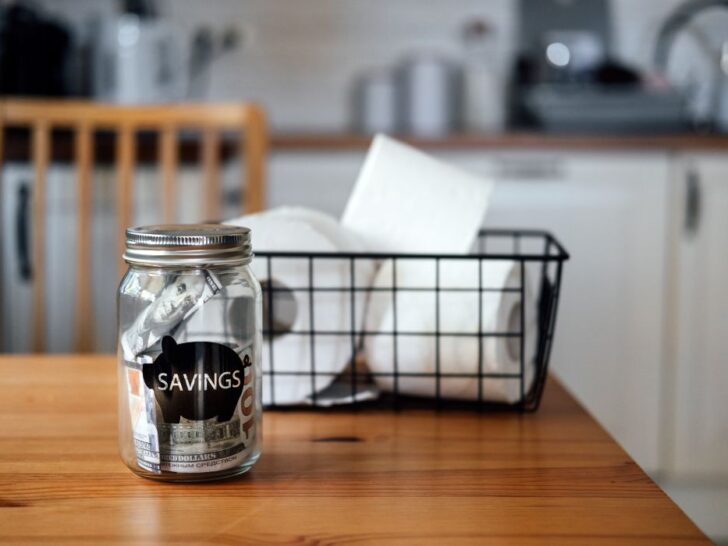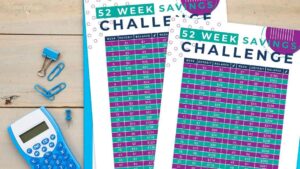Frugal living is all about managing your money wisely and carefully so that you can live comfortably without overspending. Finding ways to maximize the value of your money doesn’t mean living in poverty or giving up all luxuries; it’s about exactly that. Adopting a frugal lifestyle can help you reach your savings goals faster and significantly reduce your financial stress. Frugal living increases awareness of spending, whether it’s for daily necessities or occasional pleasures, by focusing on long-term financial health.
Evaluate your Spending Habits
Developing a frugal lifestyle starts with evaluating your current spending habits. By tracking your monthly cash flow, you can identify unnecessary expenses and see where you can improve. Many people are shocked by how much money they spend on dining out, impulse purchases, or subscriptions. Spotting these loopholes can help you change course and put the money into a savings account or spend it on other important financial goals. Understanding your spending can help you save more money each month.
Budget-friendly Attitude
Changing perspectives is an important part of economic life. Instead of thinking about your budget as a limiting task, think of it as a tool to help you achieve your financial goals. A budget can help you track your income, set reasonable spending limits, and prioritize necessary purchases. It also allows you to plan for both short-term needs and long-term goals, such as an emergency fund or retirement savings. By regularly evaluating your budget and making changes where necessary, you can ensure that you stay on track financially without feeling like you’re falling short.
Reduce Daily Expenses
One of the easiest ways to save money is to cut back on your daily expenses. Think about reducing your household energy consumption, canceling unnecessary memberships, and cooking at home instead of eating out. Small changes, like making your own coffee instead of buying it from a café, can add up over time. Find ways to simplify your life and cut back on your daily expenses. When you spend less on everyday necessities, you can have more money left over to achieve your larger financial goals.
Live Simply, Reduce Clutter
Simplicity is another key aspect of frugal living. Not only does a minimalist lifestyle help you spend less, it also improves your overall sense of happiness. Owning less stuff allows you to focus on the things that truly make you happy, preventing you from having to buy more and more stuff. Decluttering your space keeps it clean and tidy, saving you time and money. Embracing a simpler lifestyle means choosing quality over quantity and prioritizing what’s truly important to you; that doesn’t mean sacrificing comfort or style.
Find Innovative Ways to Reduce Food Costs
While there are many ways to cut back on food costs without sacrificing nutrition or flavor, food is often one of your biggest monthly expenses. Meal planning helps reduce food waste and avoids last-minute takeout. You can reduce your grocery bill even further by buying in bulk, choosing store brands, and taking advantage of discounts. Cooking at home instead of eating out can also have a big impact on your finances. Growing your own herbs and vegetables or even starting a small garden can help you produce fresh food at a lower cost.
Choose Second-hand Goods
Buying second-hand is a great way to save money on things. Second-hand products are available everywhere, at a fraction of the price of new. They can also be found at thrift stores, online marketplaces, and flea markets. You can usually find used items in good condition, such as clothing, furniture, books, and electronics. Not only is this a money-saver, it’s also an environmentally friendly choice. Choosing to shop second-hand can save you money without sacrificing quality or style.
Cutting Costs on Transportation
There are several ways to reduce transportation costs, but they can eat up a significant portion of your budget. If you have a car, consider walking, biking, or taking public transportation. If you must drive, make sure your car is well maintained to avoid expensive repairs in the future. Try to save money on gas by comparing the best insurance rates and see if you can find the lowest gas prices in your area by carpooling or using an app. Over time, you can save a lot of money by using alternative transportation or cutting back on car-related expenses.
Build a Robust Emergency Fund
Part of living frugally is having an emergency fund. You can set aside some money for unexpected expenses so that you build a financial buffer and can avoid debt if life throws you a curveball. Try to cover at least three to six months of living expenses. Start small and gradually build your emergency fund. This safety net gives you peace of mind and helps you achieve your frugal living goals without having to worry about an unexpected financial crisis.
Conclusion
Frugal living doesn’t mean living in poverty, it means making smarter decisions that lead to long-term financial security and satisfaction. By evaluating your spending, embracing the simple approach, and finding innovative ways to save, you can make a big difference in achieving your financial goals. The secret is to understand your expenses, prioritize what’s really important, and enjoy life within your means. With a frugal mindset, you can save a lot of money without having to give up the things that make you happy.
FAQs
1. Is frugal living the same as being stingy?
While being frugal often means cutting back in certain areas, which can impact your quality of life or happiness, frugal living is about saving money through thoughtful, careful decisions. Frugality is about maximizing value, not spending as little as possible all the time.
2. Can frugal living improve the quality of life?
Absolutely! Frugal living can improve your overall well-being and happiness by focusing on what’s truly important, simplifying your life, and prioritizing meaningful experiences over material possessions.
3. How can I live more frugally?
Track your spending, create a budget, and identify areas where you can cut back. These include cooking at home, shopping secondhand, and canceling useless subscriptions.
4. Does frugal living mean I have to give up all luxuries?
Not at all. This statement is not at all accurate.ng is all about finding a balance. While this involves being thoughtful and appreciating pleasure, you can also appreciate pleasure.
5. How long does it take for frugal living to pay off?
Results will vary depending on your individual situation and goals. But if you stick to a moderate approach regularly, you’ll start to see savings and positive financial changes after a few months.




